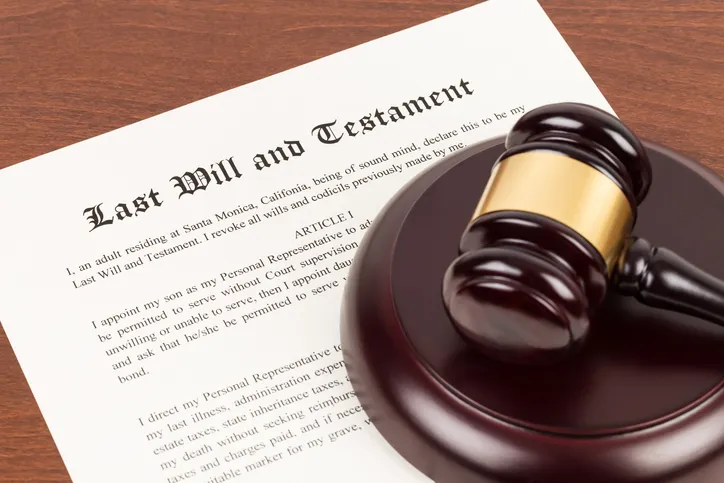For many individuals who plan on transferring assets after their passing, it’s important to avoid probate in Alaska. Probate can be a time-consuming and costly process involving the court’s supervision when it comes to distributing the deceased’s estate. By understanding how to avoid probate in Alaska, individuals can ensure that their assets are transferred directly to their heirs without the need for court intervention, providing peace of mind to both themselves and their beneficiaries.
Are you interested in setting up your estate so that it can avoid probate in Alaska? Consider reaching out to a financial advisor.
Understanding Probate in Alaska
In Alaska, probate is generally required if the deceased owned assets solely in their name without designated beneficiaries, or if the estate includes real property. The probate process involves validating the will (if one exists), appointing a personal representative, inventorying assets, paying debts and taxes, and distributing the remaining assets to beneficiaries.
Probate is initiated by filing a petition with the court. If the estate is valued under $50,000 or consists solely of personal property (up to $100,000 in motor vehicles), Alaska allows for a simplified probate process known as “summary probate.” For larger estates or those including real estate, a more formal probate process is required, which can take more time and involve multiple court hearings.
The personal representative, appointed by the court, is responsible for managing the estate through probate. This includes notifying heirs and creditors, managing and appraising assets, settling debts, and distributing the remaining assets according to the will (or state law if there is no will). The process can take several months to over a year, depending on the complexity of the estate and any potential disputes.
How to Avoid Probate in Alaska

To avoid the probate process in Alaska, there are several different strategies you can consider, depending on the asset and your situation. Here are seven general ones:
- Living trusts: Establishing a living trust allows you to transfer assets into the trust while you’re alive. Upon your passing, the assets in the trust are transferred to your beneficiaries without going through probate. This can include real estate, bank accounts and other significant assets.
- Joint ownership: Holding property jointly with rights of survivorship means that when one owner dies, the property automatically passes to the surviving owner. This can apply to real estate, bank accounts and other types of property.
- Payable-on-death designations for bank accounts: Naming a payable-on-death (POD) beneficiary for your bank accounts ensures that the funds are transferred directly to the designated individual upon your death, bypassing probate.
- Transfer-on-death registration for securities: You can register your stocks, bonds, and other securities in transfer-on-death (TOD) form, which allows them to pass directly to your designated beneficiaries without probate.
- Transfer-on-death deeds for real estate: Alaska allows for transfer-on-death deeds, which enable you to name a beneficiary to inherit your real estate directly upon your death, thereby avoiding probate.
- Transfer-on-death registration for vehicles: Similar to real estate, you can register your vehicle in transfer-on-death form, ensuring it passes directly to your beneficiary.
- Simplified probate procedures: For small estates valued under $50,000 or consisting solely of personal property, Alaska’s summary probate process can be a faster and less expensive alternative to formal probate.
Frequently Asked Questions About Probate in Alaska
What Can Delay Your Inheritance in Alaska?
Delays in inheritance can occur due to disputes among heirs, unresolved debts or taxes, or the discovery of additional assets. Legal challenges to the will can also significantly extend the probate process.
How Long Do You Have to File Probate After Death in Alaska?
In Alaska, probate should be filed within three years after the decedent’s death. However, it’s advised to start the process as soon as possible to avoid any complications and delays.
What Happens if Someone Dies Without a Will in Alaska?
If someone dies without a will in Alaska, their estate is distributed according to the state’s intestacy laws. This typically means the estate will go to the closest relatives, such as a spouse and children. If there are no close relatives, the estate may go to more distant relatives or, ultimately, to the state.
What Is Inheritance Funding and How Does It Work in Alaska?
Alaska also allows for inheritance funding. Also known as probate or estate loans, inheritance funding provides beneficiaries with an advance on their inheritance. Companies offering this service will provide a lump sum in exchange for a portion of the beneficiary’s inheritance. This can help beneficiaries access funds quickly, especially if the probate process is expected to be lengthy.
Bottom Line

Understanding how to avoid probate in Alaska can save your beneficiaries significant time and money. By employing strategies such as living trusts, joint ownership and transfer-on-death designations, you can ensure your assets are distributed efficiently and without court intervention.
Estate Planning Tips
- If you’re thinking about building an estate plan, consider reaching out to a financial advisor. Finding a financial advisor doesn’t have to be hard. SmartAsset’s free tool matches you with up to three financial advisors who serve your area, and you can interview your advisor matches at no cost to decide which one is right for you. If you’re ready to find an advisor who can help you achieve your financial goals, get started now.
- As you’re planning out your estate plan you’ll want to make sure you check all the boxes and cover all the important steps to protect your estate. Consider using SmartAsset’s free estate planning checklist to help you do just that.
Photo credit: ©iStock.com/JeanUrsula, ©iStock.com/Casper1774Studio, ©iStock.com/AlenaPaulus
